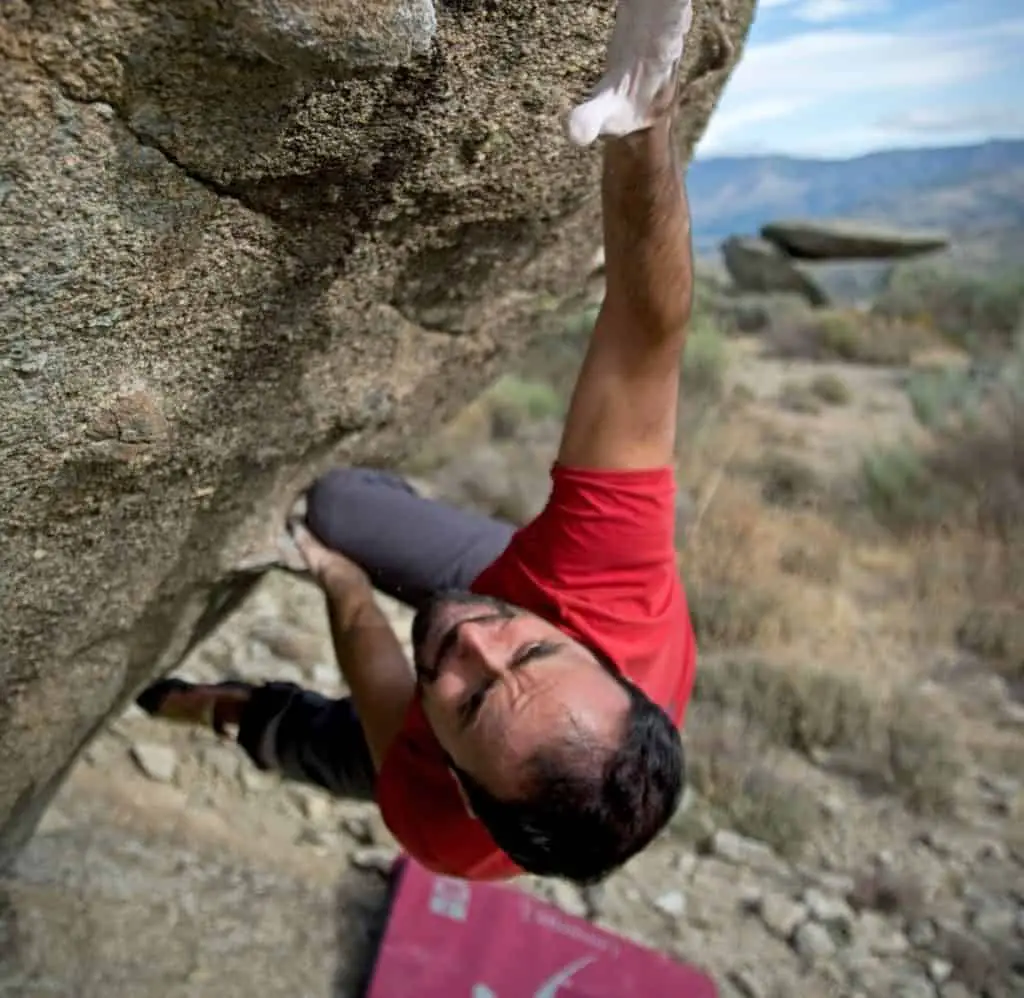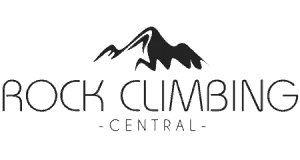
A question I was asked the other day while in a ‘louder’ climbing gym was “do you actually know the reason why climbers scream like that?” to which I replied “no”. I was pretty surprised I hadn’t actually asked myself this question before, maybe because I thought I instinctively knew. But the basic rundown answer I got was pretty interesting, so I thought I’d expand on these with you in this article.
So, why do rock climbers scream? Screaming when climbing, aka “power screaming” has been shown to enhance muscular force if done during maximal force exertion. What this means is that, if you shout when you’re exerting a lot, you’ll improve your muscular strength for a short time. While screaming can help, in most gyms it’s seen as bad etiquette if you’re making a lot of noise.
Read on for more information about why climbers shout, the way power screaming enhances muscular force and the positives/negatives of screaming when climbing.
Page Jumps
- Why Do Climbers Shout When They Climb?
- What is a Power Scream?
- Does Screaming Make Your Muscles Stronger?
- Does Screaming Actually Help Climbing?
- Is Screaming Considered Bad Etiquette When Rock Climbing
- Climbers Known to Scream When Climbing
Why Do Climbers Shout When they Climb?
Climbers usually shout or scream when they climb to help them transition onto certain holds that may require more force or strength. Adam Ondra, one of the world’s most well-known and best climbers, screams a lot when climbing, especially on more difficult routes. Shouting while climbing, especially when transitioning on a very hard route, is common for some climbers.
However, other climbers will shout or scream when climbing simply for attention. I’ve seen this first hand. Even when climbing easier routes that I know some more experienced climbers can do with no problem, I’ve heard screams that were very exaggerated.
Of course, another reason why you might hear someone scream or shout when climbing is because they’re either injured or in a spot of bother. This is more than an acceptable time to shout.
Climber’s should only really be screaming on more difficult routes that require more strength or exertion. This is called a power scream and can be backed up with science.
What is a Power Scream?
A power scream is done by many people or athletes in different disciplines or sports such as climbing, combat sports, weightlifting and tennis. You’ll often hear climbers scream when performing a difficult transition, a boxer scream while putting the maximum force into a punch on a punchbag, or a tennis player scream to put a lot of power onto their swing. The question we then have to ask is, does powering screaming actually work?
It has been shown that screaming or shouting ‘strengthens maximal voluntary force’. The study shows that when an athlete or person shouts during their maximal force exertion, they will achieve a muscular-force enhancing effect (Source).
One study also gave evidence for the positive effects of power screaming. In the study, 50 martial artists (25 novices, 25 experts) completed a hand-grip strength test under power scream and non-power scream conditions. Performance was significantly better when power screaming was involved (Source).
One study also suggests that breathing (or even holding your breath) at the right times is crucial for most sports.
Does Screaming Make Your Muscles Stronger?
While there is evidence that power screams make you stronger, or at least help with performance in certain areas of a discipline, there’s not a huge amount of research out there. However, any research that has been done has always pointed to power screaming significantly helping force exertion or athletic performance.
That said, screaming has only been proven to help improve muscular strength in short bursts, so screaming once won’t make you stronger long-term.
Does Screaming Actually Help Climbing?
So, while we know that screaming has its positives in terms of rock climbing or bouldering performance, does it have any more positives, and does it have any negatives? Screaming definitely helps when climbing, especially when you’re at maximum exertion. Let’s break down a couple of positives and a couple of negatives regarding screaming while climbing.
The Positives of Screaming When Climbing
- Improved performance due to increase of force exertion – we’ve talked about this earlier. Screaming at maximal force exertion means enhancement of muscular force.
- When climbing within a small party of people, no one really cares – if you’re in a small group of people you know then they probably won’t care how often you scream when you climb.
The Negatives of Screaming When Climbing
- Bad etiquette if screaming too much, especially in a climbing gym or busy crag – this seems obvious but some climbers don’t seem to understand this. Personally, I’m not bothered if someone’s screaming on the crux of a climb.
- Can give you a hoarse voice box – too much screaming can hurt your voice box. But I guess you’d have to scream quite a bit for it to affect your voice that much.
Is Screaming Considered Bad Etiquette When Rock Climbing
As mentioned, screaming (especially if you’re doing it a lot) will make many other climber’s annoyed, and it’s considered bad etiquette. This is especially true when you’re in an indoor climbing gym or at a busy crag.
So, the question then begs, can you scream in an indoor climbing gym or busy crag? I would say that you only really want to scream on a problem that needs you to scream. If there’s a route that you need to use maximal force exertion, or you’re on a certain area of a climb that you’ve failed before and want to pass, then these are the times I, and many other climbers would say screaming is ok.
It is not ok to scream in a climbing gym or busy crag constantly, on every climb, regardless of the difficulty. This is usually attention seeking, and the only attention that a climber will get when they do this will be sneering and disgust from other climbers.
Climbers Known to Scream When Climbing
There are many professional climbers who scream when climbing to reach their maximum potential, especially on certain parts of a problem. Some of these climbers are:
- Adam Ondra – I’ve written a short bio about Adam in my article titled “The 13 Most Famous Climbers of All Time” which you can go straight to here.
- Chris Sharma – I’ve also written a short bio for Chris on the same page which you can go straight to here.
- Alex Megos – Alex (or Alexander) Megos is a German rock climber and was the first climber ever to on-sight a problem that’s been graded 9a (click here to find out more about climbing grades and what they mean). His instagram handle is @alexandermegos.
- Jonathan Siegrist – Jonathan is a climber from Boulder, Colorado who has climbed up to the grade of 5.15a. His instagram handle is @jonathansiegrist.
